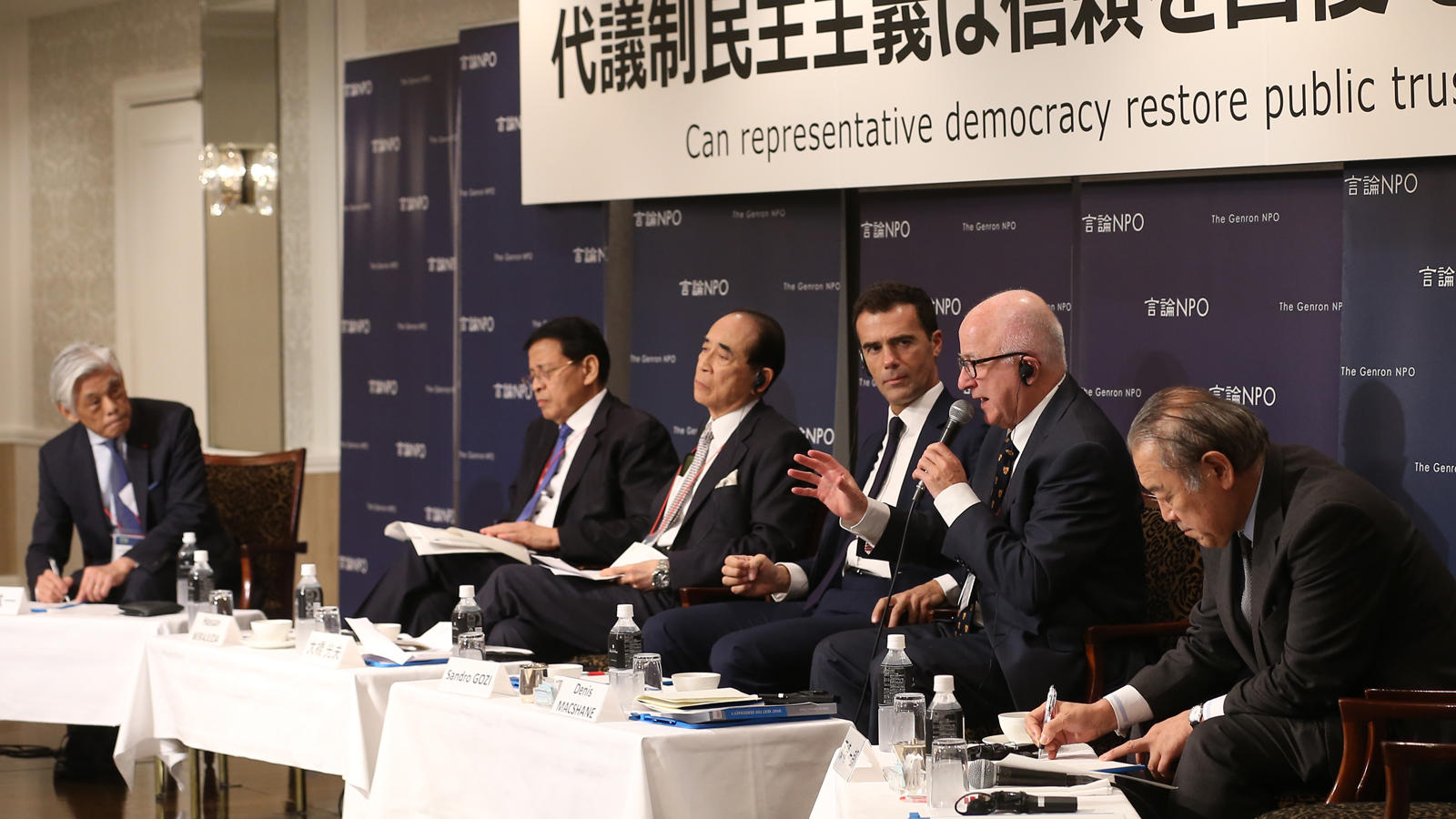can't satisfy all of the people all of the time." For MacShane, the desire to improve democracy is a "false hunt for the perfect system", as democracy works because it links deliberation and decision. The danger with more direct forms of democracy is that "plebiscites are the recipe for populism".
A more appropriate method of improving upon the system would be to ensure that political parties become dependent on public money, and no other source of income.
"The moment a rich man can offer money, democracy is going out of the window," MacShane asserted, "When money can buy democracy, it begins to die. All of our populist friends are very dependent on rich men's funding."
Another idea would be to introduce term limits, which while controversial, would ensure that the political class is constantly being refreshed by the infusion of new blood.

Gozi believes that the various gaps that exist in society must be reduced to regenerate the democratic system. These include the political distance between urban and rural areas - a fundamental democratic problem that exists in all countries - and the conflict between older and younger generations. While improving upon efficiency and delivery is important, politicians win when they give people hope. He repeated his point from the previous session, adding that democratic legitimacy can also be improved through transnational institutions.
Wirajuda praised the system we have, saying that the "beauty of democracy is that it has the capacity to renew itself through elections", but adding that the source of declining trust may be because "governments have yet to prove that democracy works and provides peace, security, welfare, and social benefits". Coming from the extremely pluralistic society of Indonesia, Wirajuda also believes that tolerance is a key part of democracy, and a lack of dialogue has led to the gap between the politicians and the electorate.
Ohashi's argument also touched upon the idea of greater tolerance, but he expanded upon the idea, suggesting that it would be beneficial to ensure that the public is well-educated in humanistic ideals that provide people with integrity and common sense.
Fujisaki followed up on that point by expressing his belief that slow democratic consensus is better that quick, authoritarian decision-making, and asked MacShane his thoughts about whether having a multi-party framework is better than a de-facto two-party framework.


Post a comment